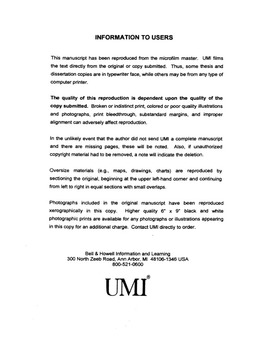| dc.contributor.advisor | Copeland, Gary, | en_US |
| dc.contributor.author | Birdsong, Jeffrey Wayne. | en_US |
| dc.date.accessioned | 2013-08-16T12:18:06Z | |
| dc.date.available | 2013-08-16T12:18:06Z | |
| dc.date.issued | 2001 | en_US |
| dc.identifier.uri | https://hdl.handle.net/11244/275 | |
| dc.description.abstract | This research is a qualitative study on potential candidates who were in the process of deciding to run for the state legislature. From the interviews and observations of potential candidates, a greater understanding develops on why individuals decide to run for office and also how organizations, namely political parties, help them. While individuals must ultimately make a personal decision on whether or not to run for office, all potential candidates are shaped by the same factors, such as a state's political culture, political party strength, and the status of the incumbent. These factors and others are portrayed in the following chapters. Chapter one provides a literature review on candidate emergence and theories on candidacy. Chapter two describes how the political culture of Oklahoma is changing and how this change will affect the decisions of potential candidates. Chapter three categorizes potential candidates for the state legislature based on their motivations and political abilities. In chapter four, the outcomes of the 2000 election are used to evaluate the success of potential candidates that participated in the research. On the basis of deciding to run, the status of the incumbent has the most influence on candidacy. The most qualified candidates, those with name recognition, political experience, and fundraising capabilities, are less likely to run against incumbents. This leaves those with less qualification to challenge incumbents, which perpetuates the strength of incumbency. The ability of incumbents to "scare off" quality challengers suggests the effectiveness of the permanent campaign for officeholders, especially for those incumbents in rural districts. The research contends that the process of individuals' decisions to be candidates is not only a good indicator for the attractiveness of an office and the strength of an incumbent but also an important signal to the status of a country's democracy. | en_US |
| dc.format.extent | vii, 296 leaves : | en_US |
| dc.subject | Political Science, General. | en_US |
| dc.subject | Oklahoma Politics and government. | en_US |
| dc.subject | Oklahoma. Legislature Elections, 2000. | en_US |
| dc.subject | Political candidates Oklahoma. | en_US |
| dc.title | Choosing to run: The dynamics of candidate emergence in the state legislature of Oklahoma. | en_US |
| dc.type | Thesis | en_US |
| dc.thesis.degree | Ph.D. | en_US |
| dc.thesis.degreeDiscipline | Department of Political Science | en_US |
| dc.note | Source: Dissertation Abstracts International, Volume: 62-02, Section: A, page: 0749. | en_US |
| dc.note | Major Adviser: Gary Copeland. | en_US |
| ou.identifier | (UMI)AAI3004868 | en_US |
| ou.group | College of Arts and Sciences::Department of Political Science | |
